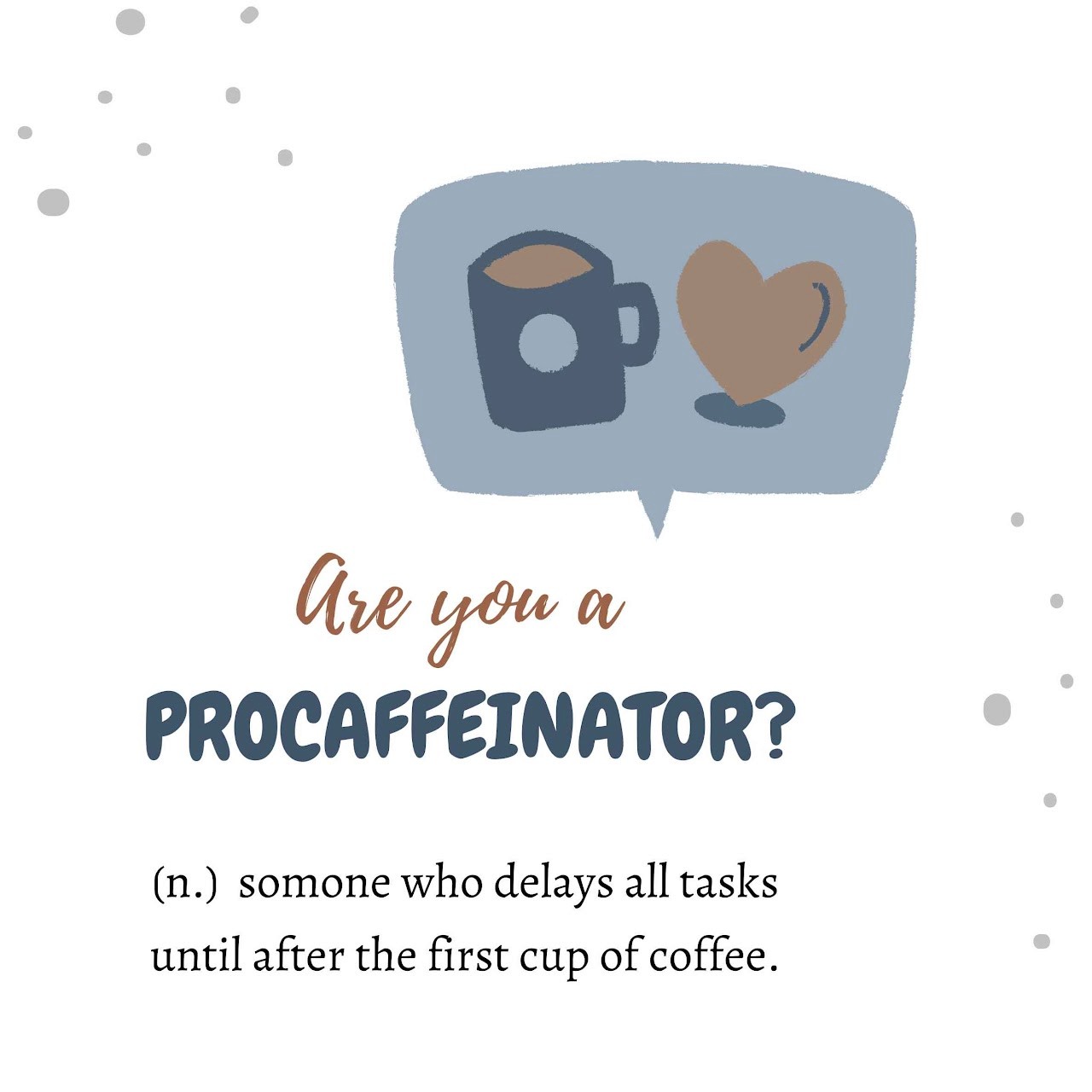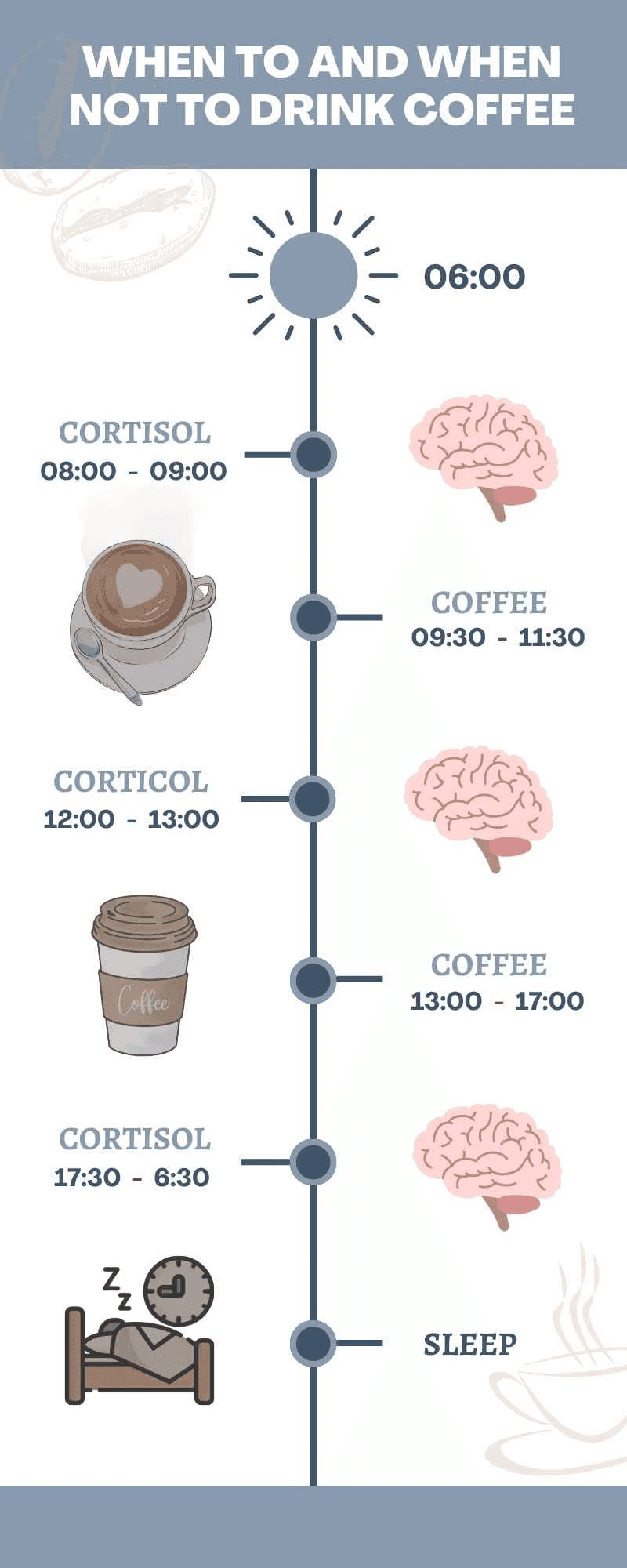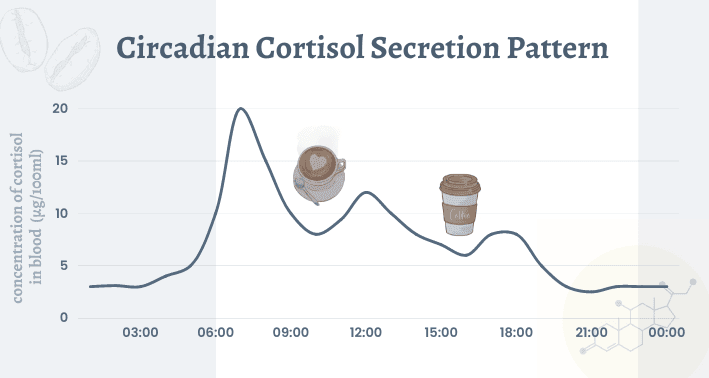Ever wondered if there is a right time to drink coffee?
January 1, 2023
WRITTEN BY: MARIYAM SHINA H, CLASS OF 2023.
The highlight of this blog is understanding the correlation between cortisol levels and coffee to determine the most ideal time to consume coffee.
Coffee is a well-known pharmaceutically active beverage packed with antioxidants that helps with many health problems. It has ingrained itself in the mechanisms of so many people's early morning routines. For most of us, it is impossible to start the day without a cup of coffee.
Even with all the health benefits, is early morning really the best time to consume coffee? According to Steven Miller, a neurologist from Dartmouth, it isn’t the wisest thing to do, because our circadian rhythm is the one that determines the best time to consume coffee.
Circadian rhythm is a periodic pattern that takes about 24 hours, where biological functions synchronize with the environmental cues. These basic rhythms are preprogrammed into us genetically. We are meant to be awake, active, and consuming food during the daylight hours or the active phase of the circadian rhythm, and asleep when it is dark. Although we can mess with our cycles through lifestyle habits, the major factor in their regulation is sunlight.

The endogenous mechanisms that regulate the circadian rhythm are organized in a hierarchical manner and consist of the master or central clock, the peripheral clocks and clock genes. The master clock is in the suprachiasmatic nucleus (SCN) in the hypothalamus. The peripheral clocks are in most tissues and organ systems and clock genes are in every cell. One of the many things that circadian rhythm controls in humans is the release of a hormone called cortisol.
Cortisol is produced from the adrenal cortex into the circulation following a cascade of signals from the limbic system to hypothalamus and pituitary gland, and levels are maintained within bounds by negative feedback to multiple brain regions. It can serve as a measure of a healthy circadian rhythm. This hormone is produced during times of stress, danger, or anytime you need to be more alert. Cortisol level fluctuates throughout the day. Although the most dramatic peak of cortisol production occurs within an hour of waking up, there are a few other times where concentration of cortisol peaks again. These are between 12:00 to 13:00, and between 17:30 to 18:30.
So, if you already have a lot of cortisol running through your system, you don’t need caffeine to feel awake. In fact, that feeling of grogginess in the morning is most likely from normal sleep inertia, which is the body’s adjustment period between sleeping and wakefulness. And it only typically lasts for 30 minutes to an hour. After that, you can rely on your everyday, regular, and natural dose of cortisol to keep you alert and awake. In other words, coffee is most likely unnecessary at this point in the morning.
The circadian rhythm varies from person to person, and the reaction of the body to coffee also differs in different people. This is why it is hard to say for certain when the best time to drink coffee is. According to a study published in the Journal of Sleep Research carried out by the US army on individuals who wake up at 06:30, morning coffee should be consumed between 8am – 9am. Furthermore, Steven Miller asserts that even if we awaken before sunrise, we will still experience a 50% boost in cortisol production because ‘cortisol awakening response' occurs no matter how bright outside is. Hence, early risers can also adjust their first cup of coffee to the blood cortisol level.
According to chrono-pharmacologists who study drug interactions with circadian rhythm, consuming coffee when our body is already at peak cortisol-production, inhibits further production of cortisol and relies more on coffee/caffeine. This can alter the normal functions of the body, as cortisol mediates many metabolic processes ranging from increasing cerebral perfusion, local glucose utilization, enhancing cardiovascular output and modulating immune function. Furthermore, drinking coffee while cortisol is high leads us to develop longterm tolerances for caffeine, which is why so many habitual coffee drinkers say it has less of an effect on them and increase their intake in order to stay alert.

Coffee has become a modern necessity, which we rely on to meet the everyday demands of contemporary capitalism. It’s estimated that 1 billion people consume coffee worldwide. If you consider yourself as a procaffeinator or if you frequently increase your daily coffee intake to achieve the desired boost, try switching to drinking coffee after your cortisol levels have decreased.

